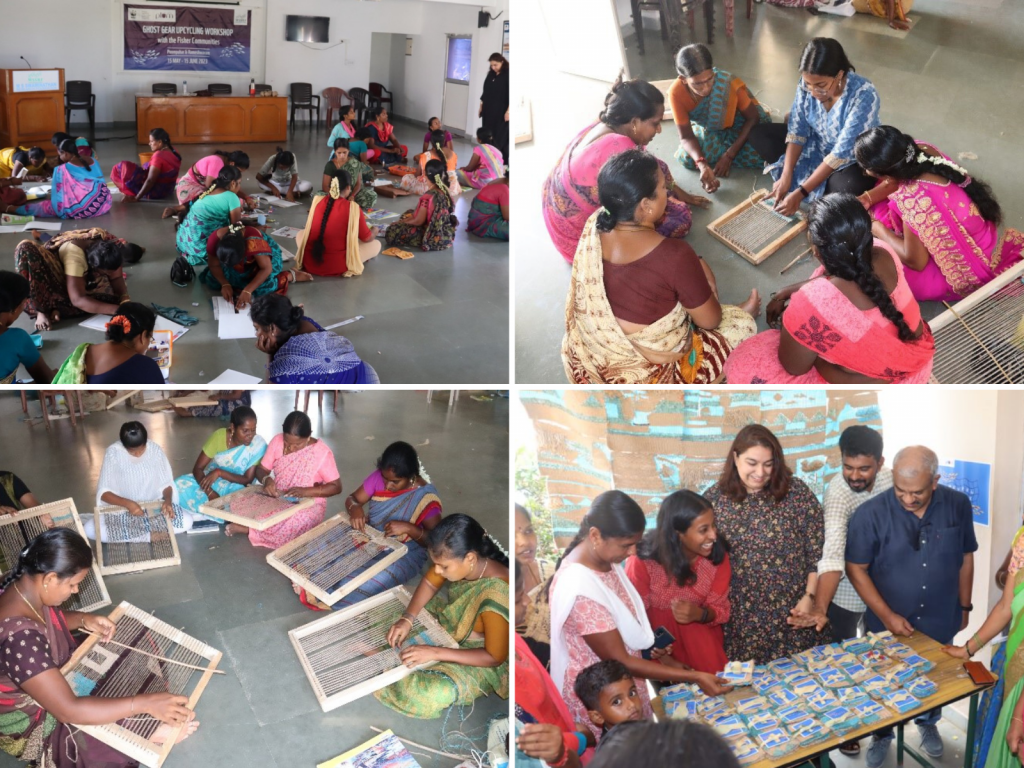Every day, India dumps over 1.5 crore kg of plastics in its oceans, according to the United Nations Environment Programme (UNEP). These plastics come from its major cities, discarded and carried by rivers to the ocean. Many of them are single-use plastics, designed to be disposed of. Marine animals could get trapped in these plastics; some fish may ingest them. For years, these pollutants float and break down in the seas, then come back to land in the form of micro-plastics, invading the food we eat, the water we drink, and the air we breathe.
Solving the issue of marine plastic pollution sometimes seems impossible – the sheer amount of waste generated is daunting, and individual efforts seem insignificant in comparison. However, with many organisations working towards the goal of saving our planet, there is still room for hope. Sometimes, something as simple as awareness campaigns have been able to help reduce the damage to our coastal systems.
“The main reason people throw waste in the sea is a lack of awareness of its negative effects,” says Dr Velvizhi, Head, Fish For All Centre. Explaining the cascading effects coastal pollution has on marine life, coastal communities and coastal livelihoods, Dr Velvizhi spoke of M S Swaminathan Research Foundation’s (MSSRF) efforts to spread awareness among coastal communities about the ill-effects of plastic pollution by organising coastal clean-ups and awareness campaigns.
One example of a successful awareness campaign is the problem with ghost gear. ‘Ghost gear’ refers to abandoned or lost fishing gear (usually old fishing nets) that are often disposed of in oceans. According to the World Wildlife Fund (WWF) website, ghost gear accounts for more than ten percent of all marine litter.

Fisherwomen learn to upcycle old fishing nets
“Many fisherfolk throw nets into the sea because it is convenient, unaware of the consequences. By educating them on the lifespan of these nets and their negative effect on marine life, we can stop the improper disposal of nets,” Dr Velvizhi assures. She spoke of efforts, such as the training divers in ghost gear retrieval, training youth to spread awareness with communities, and ghost gear upcycling camps. These camps teach fisherwomen to convert old nets into items like jewellery, floor mats, etc., and are conducted in partnership with the WWF office in India and Plum Goodness. It prevents plastics from returning to the oceans while providing an alternate source of income for fisherwomen.
When it comes to saving our seas, everyone has a role to play. By reducing our own plastic consumption, supporting sustainable alternatives, and advocating for behaviour change, we contribute to a collective effort to save our oceans and its marine life.
Edited by: Ms Sangeetha Rajeesh
Photo credits: MSSRF

